#Robert Hume
Explore tagged Tumblr posts
Text
The Gothic novel offers no conclusions.
—Industrial Gothic

#robert hume#bridget m marshall#severance 2.07#uncertainty#the unknown#gothic terror#devon hale#my beloved#gothic#severance#severance spoilers
4 notes
·
View notes
Text
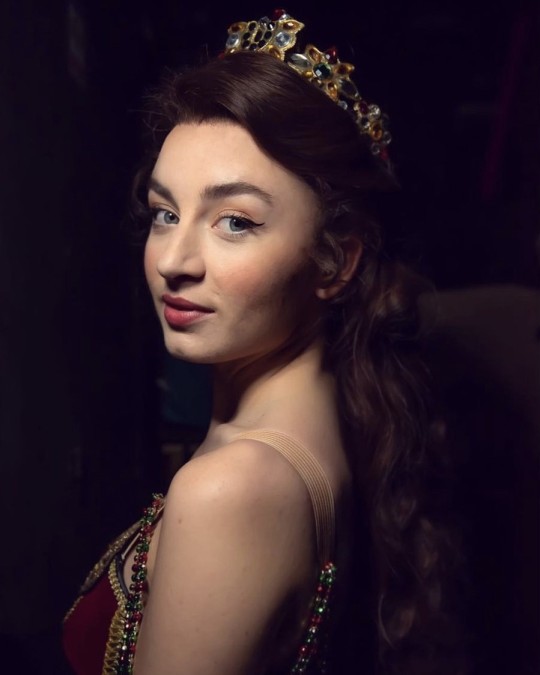

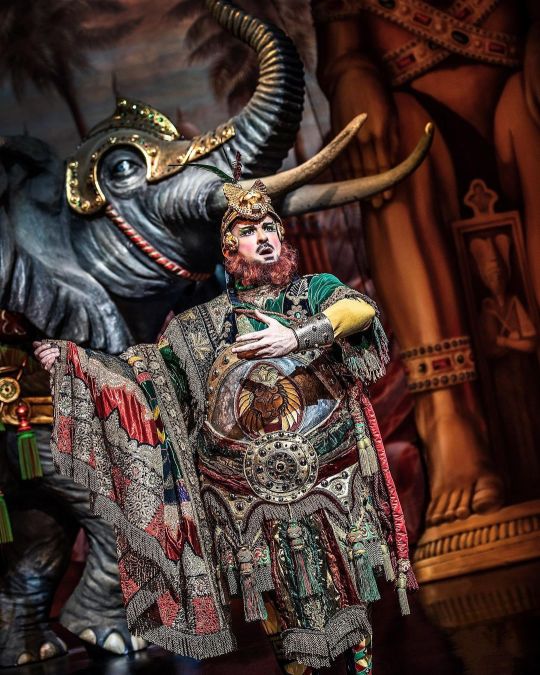

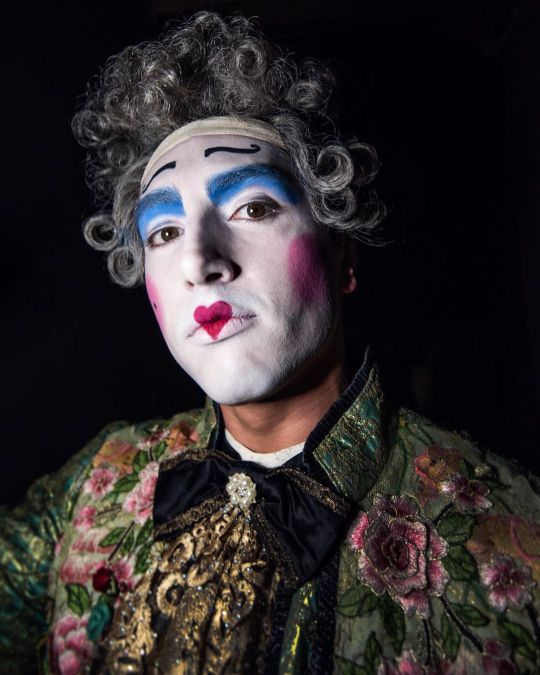
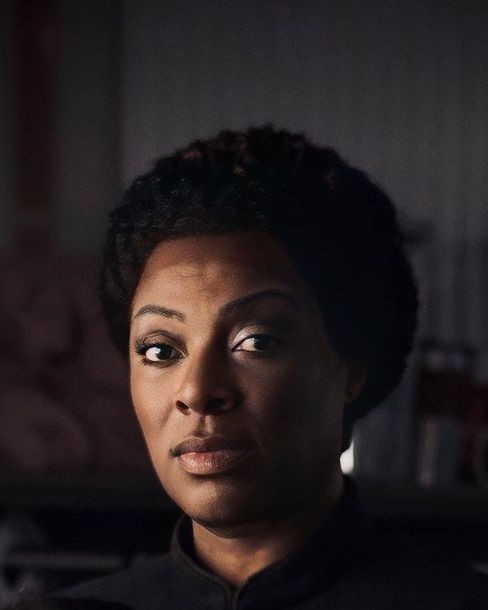
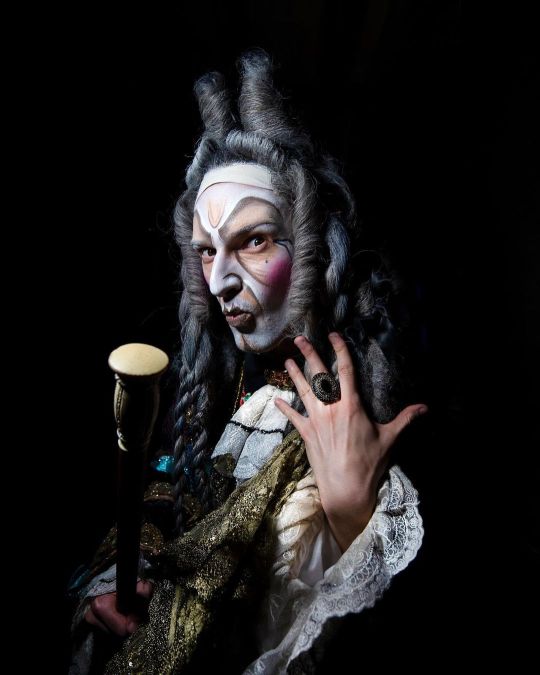
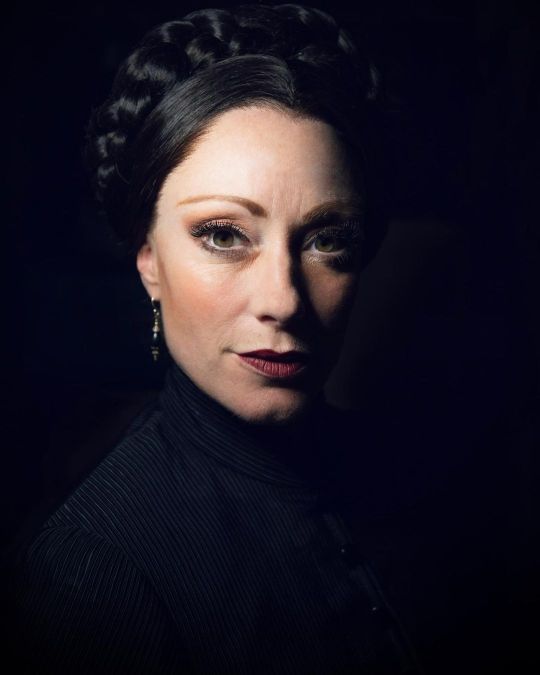
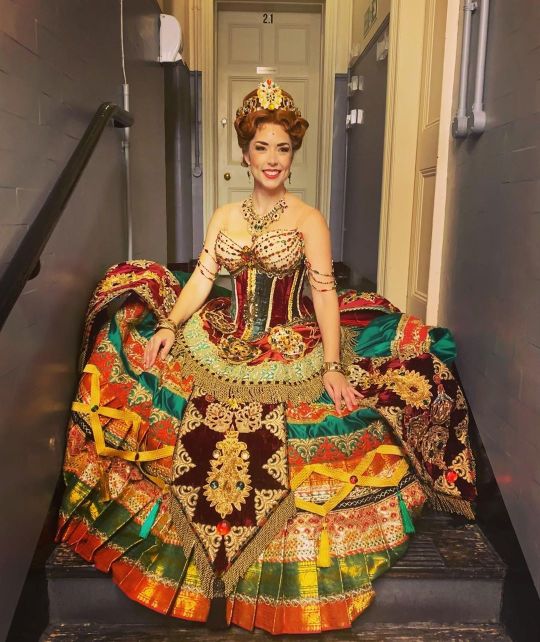
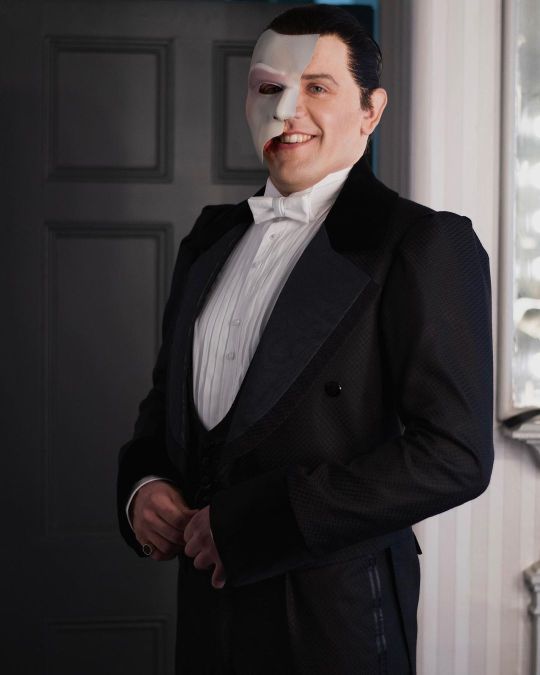
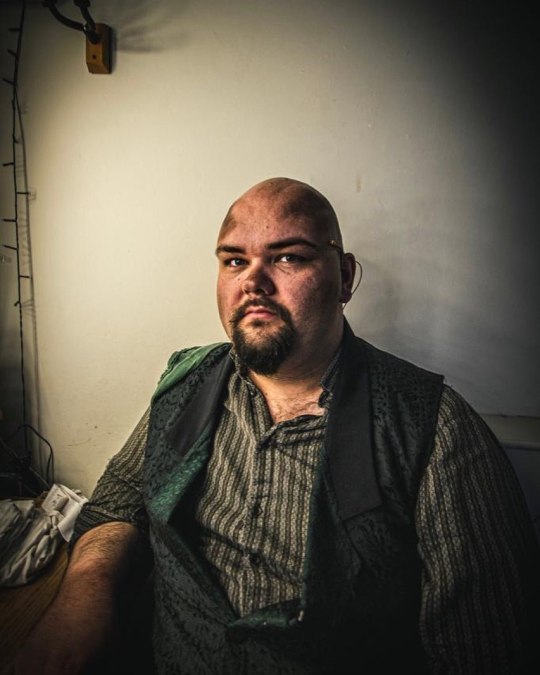
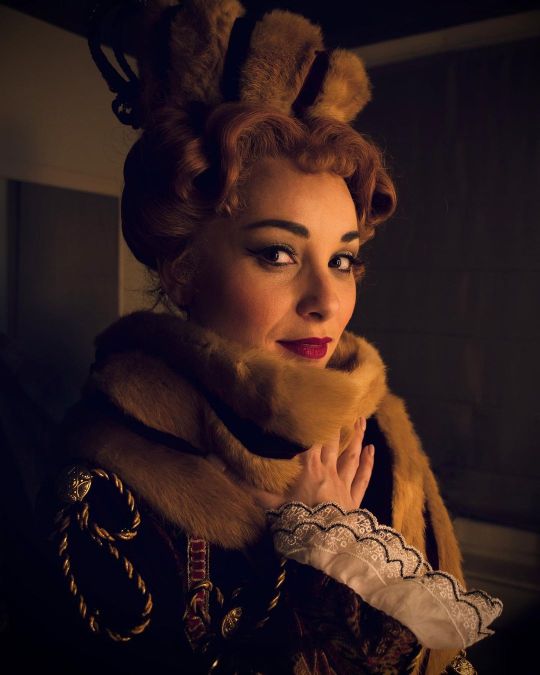
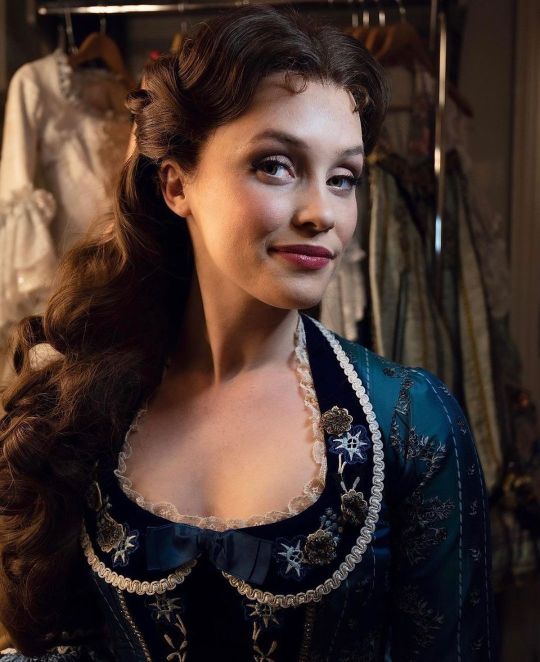
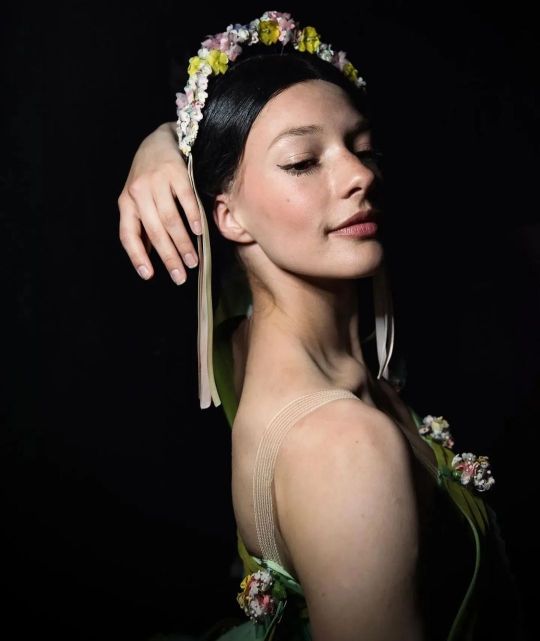
Wishing (a tad belated) happy trails to the departing members of the 2022-23 London company!
(In order) Holly-Anne Hull, Matt Blaker, Greg Castiglioni, Ellie Young, Connor Carson, Michelle Cornelius, Edward Court, Emma Harris, Olivia Holland-Rose, James Hume, Michael Robert-Lowe, Manon Taris, Anouk van Laake, and Skye Weiss.
#happy trails to them!#manon rejoined this month which is why she's included even though she left last cast change btw#probably to fill in for lizzie#holly anne hull#matt blaker#greg castiglioni#ellie young#connor carson#michelle cornelius#edward court#emma harris#olivia holland-rose#james hume#michael robert-lowe#manon taris#anouk van laake#skye weiss#the phantom of the opera#phantom of the opera#poto london#poto cast change
70 notes
·
View notes
Text
ATTENTION!
I have to speak my mind. I care so much about the Don Hume x Bobby Moch fanfics, it's so cool and fun and hot. They are obviously not just FRIENDS!
If Jack or Luke saw this, that'd probably make them feel like whatever because they're not actually Bobby and Don, they just played them in a mediocre movie. It's okay if Luke is MARRIED! AND STRAIGHT! Both of them can be! So, to all the Don x Bobby fans out there, please know I mean no hate towards the straight community (I have good straight friends myself) I just want NORMAL fanfictions about Don Hume and Bobby Moch, together, not apart, as more than friends, please.
Thanks for reading.
#i don't care if it's your private opinion but why tf are you posting a bigoted psa in the main tag#where your opinion is the overwhelming minority and no one gives a shit lmao#babygirl you look so fucking stupid it's barely even funny at this point#anyway for those who might not know: luke slattery and jack mulhern are actors#they are not actually olympic gold medalist rower robert gaston moch and donald bruce hume#both of whom are very dead. and also were married. which you could have brought up instead of luke's wife#they would straight up not give a shit i hope you know that. because these are other men they played in a movie and not actually them#take your opinion to your dms with people who agree with you like the rest of us. no one wants your post here#the boys in the boat
7 notes
·
View notes
Photo
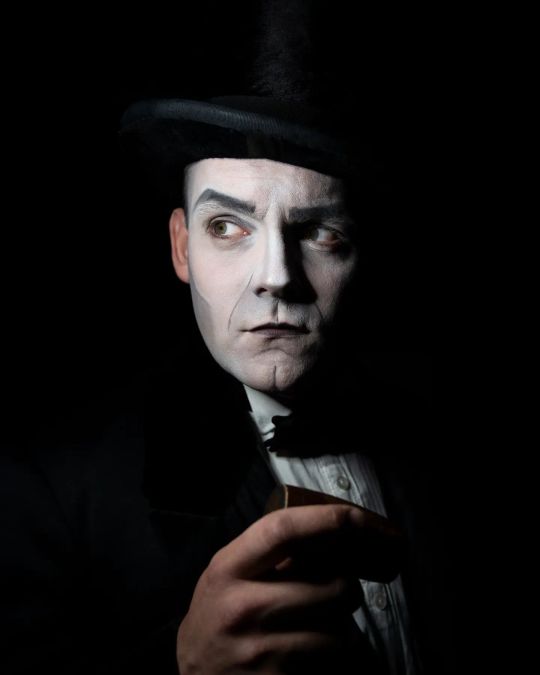
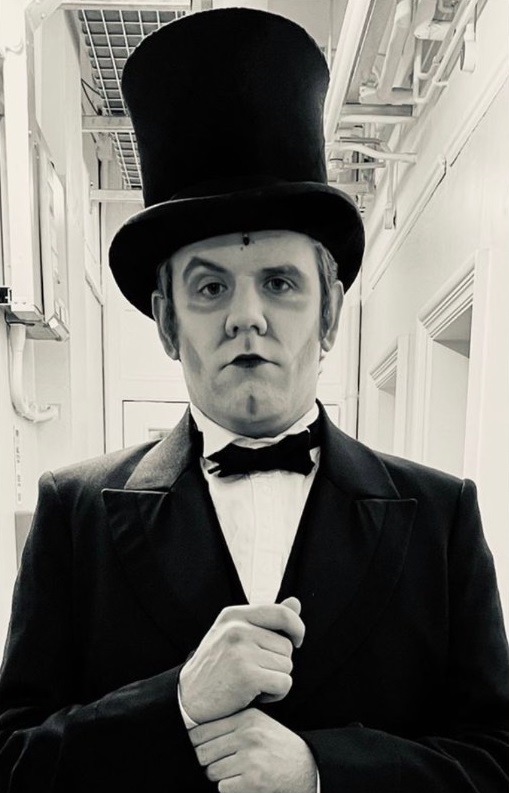
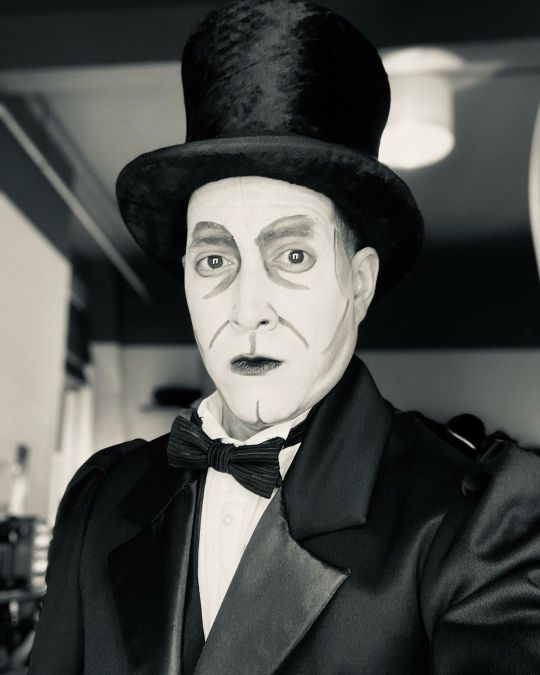
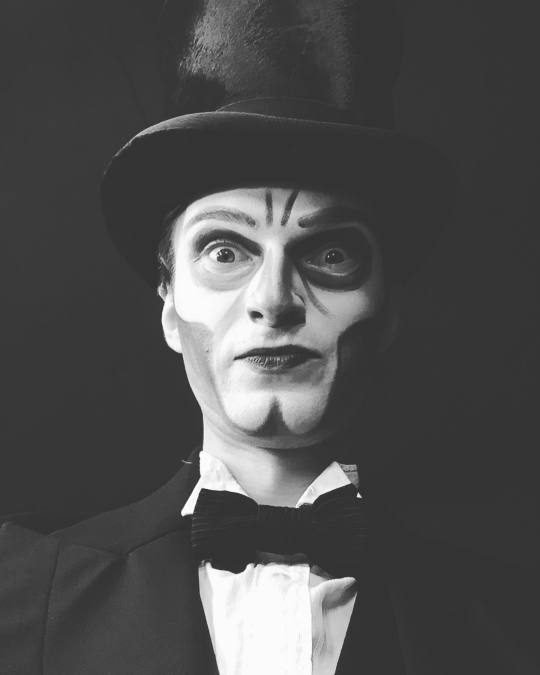
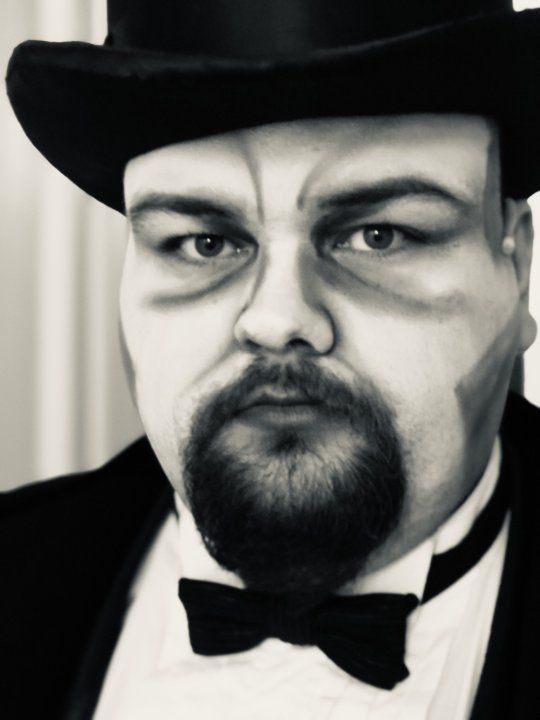
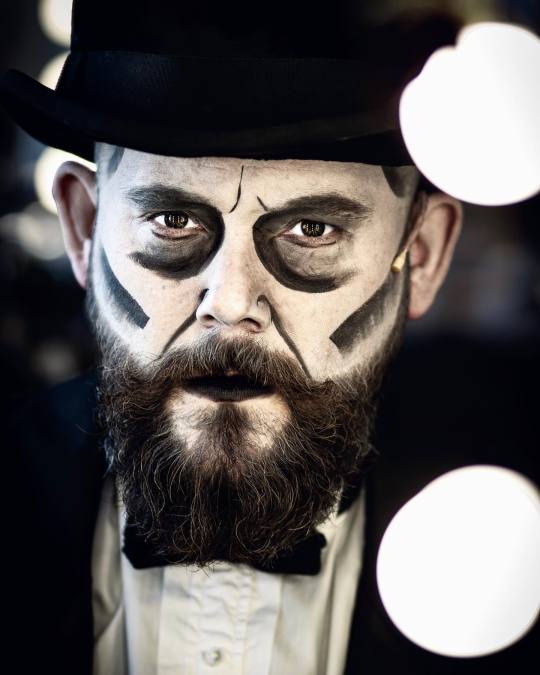
Auctioneers of the West End Revival Production of The Phantom of the Opera
James Gant (Principle, 2021 - Present)
James Hume (Understudy, 2021 - 2022)
Donald Craig Manuel (Understudy, 2021 - 2022)
Edward Court (Understudy, 2022 - 2023)
Michael Robert Lowe (Understudy, 2021 - 2023)
Leonard Cook (Understudy, 2023 - Present)
NOT DEPICTED: Tim Southgate (Understudy, 2021 - Present)
#Phantom of the Opera#auctioneer#understudy#james gant#james hume#donald craig manuel#edward court#michael robert lowe#tim southgate#leonard cook#poto west end revival#understudy love
24 notes
·
View notes
Text


In case you needed proof that the Royal Society is just a gay club
#robert hooke#isaac newton#christiaan huygens#robert boyle#gottfriend wilhelm leibniz#john locke#david hume#immanuel kant#thomas hobbes#books#the first professional scientist#homosociability#royal society
4 notes
·
View notes
Text
"Almost all the governments which exist at present, or of which there remains any record in story, have been founded originally, either on usurpation or conquest, or both, without any pretense of a fair consent or voluntary subjection of the people."
-David Hume, Of the Original Contract (1748)
#david hume#anarchism#political theory#I actually found some time to read this weekend#found this in Rule of Law edited by Robert Paul Wolff
2 notes
·
View notes
Text




#the last of mrs cheney#1937#30s#bw#multi#still#int#fireplace#joan crawford#robert montgomery#benita hume
1 note
·
View note
Text
The senile Biden cover up scandal
‘Growing limitations’ were ‘long apparent’! Pardon us all to hell if we seem obsessed by President Biden’s meltdown, televised in prime time four months before Election Day. Because we are amazed, astonished, agog, and gob-smacked! (!!!) This is a constitutional crisis akin to Watergate. Or January 6, if we may insist. America must now ask: What did all the President’s men know and when did…
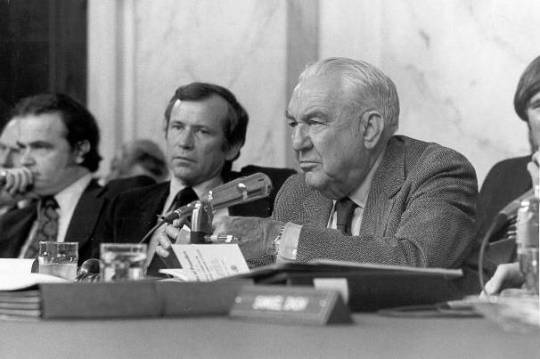
View On WordPress
0 notes
Text
"Critically discuss the view that Christians can discover truths about God using reason"
36/40, A*
Natural theology is the manner and extent by which God can be known through the natural order. It requires the use of reason, and so is general and inclusive (in that it is accessible to everyone). Many theologians, such as William Paley and Thomas Aquinas argue that God can be known through reason, with Roman Catholicism agreeing and suggesting that God can be known through the 'light of natural theology'. In this essay, I will argue that whilst Christians can discover truths about God using reason, this alone is not sufficient, so revelation is necessary for a full knowledge of God.
William Paley, in his analogy of the watch, proposes a strong argument for God's existence using nature. He argues that if we found a watch on a heath, we could infer that this is not a natural occurrence for it is so different from the naturally occurring components of the health and has intricacy and design, therefore it must have a creator - the watchmaker. In the same way, when we observe the universe, we can see that it's unique and has purpose and regularity, therefore there must be a designer: God. So, by using reason alone, we can deduce that God is the creator of the universe, discovering truths about him.
Paley's argument is an example of a design argument, which Aquinas also proposes in his fifth way. He observes that the universe has a purpose, telos, and agrees that it can only be achieved with a guiding presence: God. Richard Swinburne agrees with this suggestion. He argues that the world shows order, regularity and purpose, and so there must be an intelligent being behind it. Aquinas also has three cosmological arguments in which he argues that everything in the universe has a cause, or a mover, or a necessary being, which is God. He says that a study of natural theology leads to an 'introduction of God's sublime power, and consequently inspires reverence for God in human hearts'. Therefore, he is arguing that truths about God are discoverable through reason. Natural theology is also supported in the Bible where it says 'the Heavens declare the glory of God; the Heavens proclaim the work of God's hands. Here it is argued that by observing the universe, we can conclude that God exists, and He is the one that created the universe.
The problem with natural theology is that although it can argue the existence of God, this is the only truth about God that Christians can discover through it. The study of nature cannot teach us about God's qualities*. God could be evil, hence the flaws in the universe, or there could be more than one God. God could have created the universe years ago and abandoned it, or God could be unintelligent. Roman philosopher Cicero argued that humans have always had a sense of divinity despite what era they lived in, or their culture/traditions. However, this again doesn't reveal anything apart from the fact God exists: the Romans interpreted God much different to Christians.
*teacher comment: can't it?
Calvin agreed with Cicero in that everyone had a subjective 'sensus divinitas' (seed of divinity) which was an innate sense of God which had the potential to grow into informed truth. However there are consequences to this subjective approach, so whilst reason can be used to discover truths about God, revelation is also necessary to have a full knowledge. The first consequence is the universality of religion: religion can degenerate into idolatry without Christianity, which for example, occurred in Roman timed where sacrifices to statues took place. Next is a troubled conscience: whilst we know that God exists, we do not know what is right and wrong and so may make immoral decisions. Finally, we may develop a servile fear of God which is not taught in Christianity, making revelation necessary.
Because natural theology only gives us a limited knowledge of God, it is necessary to take a leap of faith, and gain a revealed knowledge of God. This is specific, doctrinal and exclusive to Christians as it relies on revelation and suggests God can only be known when He lets Himself be known. Many Christians agree that reason can be used to gain some knowledge, but it must be used in conjunction to faith, which is a virtue. Aquinas argued that faith both compliments and differs from other kinds of knowledge, because it doesn't have certainty and so is a choice. The view that faith is necessary alongside reason is supported in the Bible where it says 'we have come to know and come to believe that you are the Holy one of God.'
Within the Bible, God also reveals truths about Himself to His prophets such as when He tells Abraham to sacrifice his son and saves Moses from the burning bush. These are examples of immediate revelation, where God makes Himself directly known. Mediate revelation is when knowledge of God is gained through other people, such as those who trusted Moses to take them to the promised land. These truths cannot be known through reason, thus revelation is necessary.
The most common view is that reason and revelation complement each other: they are both necessary and both reveal truths about God. Faith is not held in a vacuum but builds upon the knowledge we gain through reason: the fact we live, breathe and eat are all evidence of God. Robert Boyle argues that God has two great books: the natural world and the Bible. They have the same author, and both reveal knowledge of God and so are complementary. These views are supported by Polkinghome and Bonaventure, who aregue that we have several eyes or ways of 'seeing' God that need to work together for us to discover truths about Him.
However Karl Barth, who builds upon St Augustine's argument, suggests that truths about God can never be discovered through reason. He argues that our reason is so distorted because of the Fall, we cannot know God through our own human efforts. Natural knowledge is unnecessary because God fully revealed Himself through Christ, which tells us everything we need to know about Him.
This argument is not one supported by the Bible - the Bible doesn't distinguish between natural and revealed theology, suggesting God communicates in many ways. For example, the Bible suggests using reason by traditional wisdom is a means to understanding God, such as where it says 'trust in the Lord with all of your heart [...] and He will make your pain straight'. Of course, the Bible also stresses that revealed theology is important, such as in Genesis when God revealed Jacob in a dream, but the point is, by complementary dismissing natural theology, you are dismissing the words of the Bible.
Also linking back to Aquinas's five ways, God gave us the ability to use our natural knowledge for a reason. Kant's argument is dangerous because it encourages people to be lazy and rely on faith alone, rather than seeking certainty through observation. Richard Dawkins argues that belief in God through faith alone is foolish, similar to belief in the tooth fairy: it cannot be conclusively disproved but there is no reason to support the argument and so there is no reason to commit. David Hume also argued that we shouldn't allow faith or superstition to cloud our judgement; we need to look at empirical evidence to decide what to believe.
In conclusion, whilst I agree that reason can allow us to discover truths about God, this is only to a certain extent. Therefore, the use of revealed theology is necessary, and should be used in conjunction to natural theology for a balanced approach towards leaning about God.
teacher comments: This essay gets better as it progresses! The start is very 'arguments' topic - reduce this part; the end is full of information! You have answered the set question, but I'd like some examples of different 'truths'.
14/16 + 22/24 = 36/40 A*
#bonaventure#polkinghome#robert boyle#a level religious studies#a level revision#a levels#ocr religious studies#ocr rs#religious studies#ocr religious studies essay#ocr rs example essay#karl barth#st augustine#knowledge of god#richard dawkins#david hume
1 note
·
View note
Text
This is a great resource and the article actually uses it! :D
A bunch of other people asked for the name of the article, btw, which I had meant to re-read to make sure it was as good as my first impression, but I had trouble concentrating on the many numbers it includes while I was sick. I'm re-reading it now, though, and the full and entertainingly unwieldy title is:
"The Value of Money in Eighteenth-Century England: Incomes, Prices, Buying Power—and Some Problems in Cultural Economics" by Robert D. Hume, published in the Huntington Library Quarterly in their winter 2014 edition (vol. 77, no. 4).
There are definitely parts that get well into the economic weeds and can be a bit dense if you're looking for more immediate literary analysis, which covers a few pages after pg. 408 in my PDF version.
I finally read a good article about Austen and eighteenth-century socioeconomics that gives rough approximations of eighteenth-century prices/incomes in modern (I think c. 2014) currency, but is appropriately emphatic about just how rough those approximations must always be given drastic differences in the economic worlds we live in. It's actually much more about the economics than Austen, and particularly about how much descriptions of "middling" incomes and what was affordable to people who had those incomes is still a conversation about a tiny, tiny elite in terms of the overall population at the time.
Austen-wise, though, the author also found room for a tangent in which he goes off on a scathing condemnation of Mr Bennet in socioeconomic terms, which I do love to see. Most baronets generally had land and incomes far closer to Mr Bennet's than Darcy's and yet Mr Bennet can't be bothered to even slightly provide for his children's futures beyond what was legally required by his marriage settlement (even the girls' meagre inheritances mostly come from Mrs Bennet's money rather than his). The author acknowledges the passage about Mr Bennet saving to counteract Mrs Bennet's extravagance and also how this is an indictment of Mr Bennet as well as Mrs Bennet, something that criticisms of him often skate past, and even points out how enthusiastic Mr Bennet is about the convenience of Darcy paying for it all in a way that can be read as funny and endearing, but also as distastefully shameless.
Anyway, it was nice to enjoy an academic text again, lol.
#librarianmouse#respuestas#long post#austen blogging#robert d. hume#ivory tower blogging#mr bennet#eighteenth century blogging
472 notes
·
View notes
Text
19th Century Vampire Lit I'm Gonna Read
Because I've lost my mind.
Most of these texts were found with the aid of these two posts. I did not include any of the stories listed as "not technically about vampires," except for "Let Loose," because it concerns a specter seeking blood, and "Vampirismus," because it's called "Vampirismus."
A strikethrough indicates that I've already read the work. Bold text indicates that I cannot find an English translation, whether online or for purchase. If you know of English translations of any bolded titles, please let me know.
Thalaba the Destroyer, Robert Southey (1801)
"The Vampire," John Stagg (1810)
The Giaour, Lord Byron (1813)
"A Fragment of a Novel," Lord Byron (1816)
"The Vampyre," John William Polidori (1819)
The Black Vampyre, Uriah Derick D'Arcy (1819)
The Vampire Lord Ruthwen, Cyprien Bérard (1820)
The Vampire, or The Bride of the Isles, J.R. Planché (1820)
The Vampire, Charles Nodier (1820)
"Vampirismus," E.T.A. Hoffman (1821)
Smarra, or Demons of the Night, Charles Nodier (1821)
"Wake Not the Dead," Ernst Raupach (1823)
The Vampire, or the Hungarian Virgin, Étienne-Léon de Lamothe-Langon (1825)
Der Vampyre und seine Braut, Karl Spindler (1826)
La Guzla, ou Choix de Poesies Illyrique, Prosper Merimee (1827)
"Pepopukin in Corsica," Arthur Young (1827)
The Vampire, Heinrich Masrschner and Wilhelm August Wohlbrück (1828)
The Skeleton Count, or the Vampire Mistress, Elizabeth Caroline Grey (1828)
Der Vampyre, oder die Totenbraut, Theodor Hildebrand (1828)
"The Vampire Bride," Henry Thomas Liddell (1833)
Clarimonde, Théophile Gautier (1836)
The Family of the Vourdalak, Aleksey Tolstoy (1839)
The Vampire, Aleksey Tolstoy (1841)
"The Vampyre," James Clerk Maxwell (1845)
Varney the Vampire, or The Feast of Blood, James Macolm Rymer (1845-1847)
The Pale Lady/The Carpathian Mountains/The Vampire of the Carpathian Mountains, Alexandre Dumas (1849)
"The Vampyre," Elizabeth F. Ellet (1849)
The Phantom World [select chapters], Augustin Calmet (1850)
The Vampire, Alexandre Dumas (1851)
The Vampires of London, Angelo de Sorr (1852)
The Dead Baroness/The Vampire and the Devil's Son, Pierre Alexis Ponson du Terrail (1852)
"The Vampire," Charles Pierre Baudelaire (1857)
Knightshade/The Shadow Knight, Paul Féval (1860)
"The Mysterious Stranger," Karl von Wachsmann (1860)
"Metamorphosis of a Vampire," Charles Pierre Baudelaire (1860)
The Vampire of the Val-de-Grace, Leon Gozlan (1861)
"The Vampire; Or, Pedro Pacheco and the Bruxa," William H.G. Kingston (1863)
The Vampire/The Vampire Countess, Paul Féval (1865)
Vampire City, Paul Féval (1867)
"The Last Lords of Gardonal," William Gilbert (1867)
Vikram and the Vampire, Sir Richard Francis Burton (1871)
"The Vampire Cat of Nabéshima," Algernon Bertram Freeman-Mitford (1871)
Carmilla, Joseph Sheridan Le Fanu (1872)
"Ghosts," Mihail Eminescu (1876)
Der Vampyr – Novelle aus Bulgarien, Hans Wachenhusen (1878)
Captain Vampire, Marie Nizet (1879)
"The Fate of Madame Cabanel," Eliza Lynn Linton (1880)
After Ninety Years, Milovan Glišic (1880)
"The Vampyre," Owen Meredith (1882)
"The Vampire," Jan Naruda (1884)
"Manor," Karl Heinrich Ulrichs (1884)
"The Vampyre," Vasile Alecsandri (1886)
The Horla, Guy de Maupassant (1887)
"Ken's Mystery/The Grave of Ethelind Fionguala," Julian Hawthorne (1887)
"A Mystery of the Campagna," Anne Crawford (1887)
"Romanian Deaths and Burials-Vampires and Werewolves," Emily Gerard (1888)
"The Old Portrait," Hume Nisbet (1890)
"The Vampire Maid," Hume Nisbet (1890)
"Let Loose," Mary Cholmondeley (1890)
"The Vampire," Felix Dahn (1892)
The Parasite, Sir Arthur Conan Doyle (1884)
"The True Story of a Vampire/The Sad Story of a Vampire," Count Eric Stenbock (1894)
"A Kiss of Judas," Julian Osgood Field (1894)
"The Prayer," Violet Hunt (1895)
"Good Lady Duncayne," Mary Elizabeth Braddon (1896)
"The Vampire of Croglin Grange," Augustus Hare (1896)
"Phorfor," Matthew Phipps Shiel (1896)
Dracula, Bram Stoker (1897)
"Dracula's Guest," Bram Stoker (1914*)
The Blood of the Vampire, Florence Marryat (1897)
*"Dracula's Guest" was first published in 1914 but was written either concurrent to or before the writing of Dracula.
I'm going to be honest. When I began, I thought there were four nineteenth century vampire stories. Five if you count Dracula's Guest. I've made a huge mistake.
#vampires#vampire fiction#vampire literature#19th century fiction#19th century literature#Gothic fiction
194 notes
·
View notes
Text
THE TOURNAMENT IS OVER! Eartha Kitt lounges in her deck chair in the sun, dipping her toes in the pool with Toshiro Mifune and sipping a brightly colored fruity something with an umbrella in it.
Far below in the shadow realm, however, the fallen hotties dance in the dark—let's take a minute to look back at them under the cut.
PRELIM PRETTIES:
Claude Gensac, Silvia Pinal, Ewa Aulin, Rita Tushingham, Annette Funicello, Norma Bengell, Catherine Spaak, Brigitte Auber, Micheline Presle, Nanette Fabray, Libertad Lamarque, Vera Miles, Martha Raye, Catherine McLeod, Virginia Mayo, Elizabeth Allan, Belle Bennet, Virginia Cherill, Mary Brian, Ruth Chatterton, Agnes Ayres, Merna Kennedy, Marie Prevost, Corinne Griffith, May Allison, Virginia Brown Faire, Alice Brady, and Jetta Goudal
ROUND ONE WONDERS:
Angie Dickinson, Thelma Ritter, Geraldine Chaplin, Evelyn Preer, Vanessa Brown, Betty Blythe, Susan Hayward, Mae Clarke, Sally Ann Howes, Ossi Oswalda, Adrienne La Russa, Hermione Gingold, Barbara Bouchet, Melina Mercouri, Anna Karina, Edwige Fenech, Charmian Carr, Pina Pellicer, Marlène Jobert, Tsuru Aoki, Alice Roberts, Leila Hyams, Lady Tsen Mei, Geneviève Bujold, Dolores Hart, Anita Berber, Bonita Granville, Vonetta McGee, Claire Windsor, Zizi Jeanmaire, Tuesday Weld, Grace Darmond, Carol Channing, Deanna Durbin, Laraine Day, Mariette Hartey, Wendy Hiller, Candy Darling, Hermione Baddely, Valeria Creti, Ella Raines, Ann Miller, Dana Wynter, Dalida, Martine Beswick, Gale Storm, Simone Signoret, Cristina Gaioni, Mabel Normand, Stéphane Audran, Ruth Weyher, Anna Wiazemsky, Ann Sheridan, Sandhya Shantaram, Alice White, Anne Francis, Gena Rowlands, Lyda Borelli, May Whitty, Cathleen Nesbitt, Jessica Walter, Virna Lisi, Barbara Shelley, Iris Hall, Heather Angel, Anne Shirley, Joanna Pettet, Virginia O'Brien, Joan Collins, Greer Garson, Gracie Allen, Peggy Ryan, Frances Dee, Shirley Maclaine, Geraldine Farrar, Kathleen Byron, Margaret Hamilton, Eva Gabor, Francesca Bertini, Julie Adams, Olga Baclanova, Misa Uehara, Yvette Vickers, Milena Dravić, Jenny Jugo, Madeleine Carroll, Benita Hume, Olive Borden, Shirley Jones, Miyoshi Umeki, Dorothy Lamour, Gale Sondergaard, Mary Anderson, Charlotte Greenwood, Sybil Seely, Mona Barrie, Kathryn Grayson, Katharine Ross, Madge Bellamy, Rhonda Fleming, Sally Gray, Jana Brejchová, Debra Paget, Madame Sul-Te-Wan, Evelyn Brent, Zelma O'Neal, Marie Laforêt, Türkan Şoray, Beatriz Costa, Irene Zazians, Eleanor Powell, Susan Luckey, Patsy Kelly, Lil Dagover, Norma Talmadge, Dorothy Mackaill, Madge Evans, Virginia McKenna, Amália Rodrigues, Mamie Van Doren, Valerie Hobson, Isabel Jeans, Beata Tyszkiewicz, Claire Luce, Aleksandra Khokhlova, Nieves Navarro Garcia, Janet Leigh, Carmen Miranda, Jean Harlow, Aud Egedge-Nissen, Nina Foch, Jean Simmons, Piper Laurie, Katy Jurado, Jayne Mansfield, Anita Garvin, Frances Farmer, Lizabeth Scott, Joan Greenwood, Una Merkel, Arlene Francis, Ethel Merman, Doris Day, Suzanne Pleshette, Ruta Lee, Carolyn Jones, June Richmond, Eva Nil, Diana Dors, Anna Chang, Colleen Moore, Alexis Smith, Yvette Mimieux, Ruby Keeler, Viola Dana, Dolores Grey, Marie Windsor, Danielle Darieux, Jean Parker, Julie Christie, Acquanetta, Leatrice Joy, Ghita Nørby, Julie Newmar, Joanne Woodward, Sandra Dee, Eva Marie Saint, Simone Simon, Katherine Dunham, Birgitte Price, Lee Grant, Anita Page, Flora Robson, Martha Sleeper, Elsie Ames, Isabel "Coca" Sarli, Glenda Farrell, Kathleen Burke, Linden Travers, Diane Baker, Joan Davis, Joan Leslie, Sylvia Sidney, Marie Dressler, June Lockhart, Emmanuelle Riva, Libertad Leblanc, Susannah Foster, Susan Fleming, Dolores Costello, Ann Smyrner, Luise Rainer, Anna Massey, Evelyn Ankers, Ruth Gordon, Eva Dahlbeck, Ansa Ikonen, Diana Wynyard, Patricia Neal, Etta Lee, Gloria Stuart, Arletty, Dorothy McGuire, Mitzi Gaynor, Gwen Verdon, Maria Schell, Lili Damita, Ethel Moses, Gloria Holden, Kay Thompson, Jeanne Crain, Edna May Oliver, Lili Liliana, Ruth Chatterton, Giulietta Masina, Claire Bloom, Dinah Sheridan, Carroll Baker, Brenda de Banzie, Milú, Hertha Thiele, Hanka Ordonówna, Lillian Roth, Jane Powell, Carol Ohmart, Betty Garrett, Kalina Jędrusik, Edana Romney, Geraldine Fitzgerald, Kay Kendall, Ruth Hussey, Véra Clouzot, Jadwiga Smosarska, Marge Champion, Mary Astor, Ann Harding, María Casares, Maureen O'Sullivan, Mildred Natwick, Michèle Morgan, Romy Schneider, Elisabeth Bergner, Celeste Holm, Betty Hutton, Susan Peters, Mehtab, Leslie Caron, Anna Sten, Janet Munro, Nataša Gollová, Eve Arden, Ida Lupino, Regina Linnanheimo, Sonja Henie, and Terry (what a good girl)
ROUND TWO BEAUTIES:
Evelyn Nesbit, Thelma Todd, Tura Satana, Helen Gibson, Maureen O'Hara, Rocío Dúrcal, Mary Nolan, Lois Maxwell, Maggie Smith, Zulma Faiad, Ursula Andress, Musidora, Delphine Seyrig, Marian Marsh, Leatrice Joy, Sharon Tate, Pina Menichelli, Teresa Wright, Shelley Winters, Lee Remick, Jane Wyman, Martita Hunt, Barbara Bates, Susan Strasberg, Marie Bryant, Diana Rigg, Jane Birkin, Rosalind Russell, Vanessa Redgrave, Brigitte Helm, Gloria Grahame, Rosemary Clooney, Bebe Daniels, Constance Bennett, Lilian Bond, Ann Dvorak, Jeanette Macdonald, Pouri Banayi, Raquel Welch, Vilma Bánky, Dorothy Malone, Olive Thomas, Celia Johnson, Moira Shearer, Priscilla Lane, Dolores del Río, Ann Sothern, Françoise Rosay, June Allyson, Carole Lombard, Jeni Le Gon, Takako Irie, Barbara Steele, Claudette Colbert, Lalita Pawar, Asta Nielsen, Sandra Milo, Maria Montez, Mae West, Alma Rose Aguirre, Bibi Andersson, Joan Blondell, Anne Bancroft, Elsa Lanchester, Nita Naldi, Suchitra Sen, Dorothy Van Engle, Elisabeth Welch, Esther Williams, Loretta Young, Margueritte De La Motte, Ita Rina, Constance Talmadge, Margaret Lockwood, Barbara Bedford, Josette Day, Stefania Sandrelli, Jane Russell, Doris Dowling, Zsa Zsa Gabor, Donna Reed, Ruby Dee, Diana Sands, Billie Burke, Kyōko Kagawa, Françoise Dorléac, Hend Rostom, Monica Vitti, Lilian Harvey, Marjorie Main, Jeanne Moreau, Lola Flores, Ann Blyth, Janet Gaynor, Jennifer Jones, Margaret Sullavan, Sadhana, Ruby Myers, Lotus Long, Honor Blackman, Marsha Hunt, Debbie Reynolds, Michèle Mercier, Irene Dunne, Jean Arthur, Judy Holliday, Tippi Hedren, Susse Wold, Vera-Ellen, Carmelita González, Nargis Dutt, Purnima, Harriet Andersson, Yvonne De Carlo, Miroslava Stern, Sheila Guyse, Helen, Margaret Dumont, Betty Grable, Joan Bennett, Jane Greer, Judith Anderson, Liv Ullman, Vera Zorina, Joan Fontaine, Silvana Mangano, and Lee Ya-Ching
ROUND THREE ELECTRIFIERS:
Jean Hagen, Sumiko Mizukubo, Mary Philbin, Ann-Margret, Margaret Rutherford, Claudia Cardinale, Eleanor Parker, Jessie Matthews, Theresa Harris, Brigitte Bardot, Alla Nazimova, Faye Dunaway, Marion Davies, Anna Magnani, Theda Bara, Myrna Loy, Kay Francis, Fay Wray, Barbra Streisand, Bette Davis, Hideko Takamine, France Nuyen, Claudine Auger, Miriam Hopkins, Maylia Fong, Samia Gamal, Maude Fealy, Machiko Kyō, Sharmila Tagore, Lucille Ball, Ginger Rogers, Juanita Moore, Anna Fougez, Waheeda Rehman, Ruan Lingyu, Nina Mae McKinney, Ethel Waters, Nadira, Olivia de Havilland, Abbey Lincoln, Louise Beavers, Agnes Moorehead, Lana Turner, Norma Shearer, Maria Falconetti, Reiko Sato, Marie Doro, Clara Bow, Margaret Lindsay, Catherine Denueve, Madhabi Mukherjee, Rosaura Revueltas, Hu Die, Mary Pickford, Fredi Washington, Louise Brooks, Leonor Maia, Merle Oberon, Paulette Goddard, Vivien Leigh, Francine Everett, Savitri, Tita Merello, and Meena Kumari
ROUND FOUR STUNNERS:
Judy Garland, Dorothy Dandridge, Yoshiko Yamaguchi, Marilyn Monroe, Irene Papas, Lupe Vélez, Pola Negri, Gene Tierney, Barbara Stanwyck, Gina Lollobrigida, Lena Horne, Nutan, Jean Seberg, Kim Novak, Gladys Cooper, Tallulah Bankhead, Linda Darnell, Julie Andrews, Carmen Sevilla, Gloria Swanson, Glynis Johns, Anne Baxter, Angela Lansbury, Anita Ekberg, Toshia Mori, Deborah Kerr, Hazel Scott, Chelo Alonso, Cyd Charisse, Nancy Kwan, Devika Rani, Shima Iwashita, and Anouk Aimée
ROUND FIVE SMOKESHOWS:
Setsuko Hara, Pearl Bailey, Joan Crawford, Madhubala, Marpessa Dawn, Keiko Awaji, Rita Hayworth, Veronica Lake, Ava Gardner, Greta Garbo, Grace Kelly, Xia Meng, Suraiya, Natalie Wood, María Félix, and Mbissine Thérèse Diop
ROUND SIX SEXY LADIES:
Marilyn Monroe, Sophia Loren, Vyjyanthimala, Jane Fonda, Katharine Hepburn, Josephine Baker, Elizabeth Taylor, and Ingrid Bergman
QUARTER FINALIST GLAMAZONS:
Audrey Hepburn, Marlene Dietrich, Anna May Wong, and Lauren Bacall
SEMIFINALIST ICONS:
Rita Moreno, Diahann Carroll
FINALIST FABULOSITY:
Hedy Lamarr
ULTIMATE CHAMPION OF THE HOT & VINTAGE MOVIE WOMAN TOURNAMENT:
Eartha Kitt
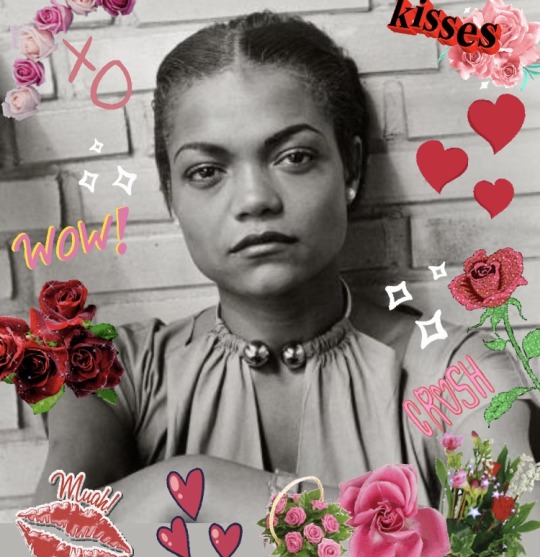
340 notes
·
View notes
Text
ENCONTRE UM AUTOR:
Envie sugestões. Leia uma citação no modo aleatório.
Autores Desconhecidos
Adélia Prado
Adrian Tchaikovsky
Affonso Romano de Sant’anna
Alain de Botton
Albert Einstein
Aldous Huxley
Alexander Pushkin
Amanda Gorman
Anaïs Nin
Andy Warhol
Andy Wootea
Anna Quindlen
Anne Frank
Antoine de Saint-Exupéry
Aristóteles
Arnaldo Jabor
Arthur Schopenhauer
Augusto Cury
Ben Howard
Benjamin Alire Sáenz
Benjamin Rush
Bill Keane
Bob Dylan
Brigitte Nicole
C. JoyBell C.
C.S. Lewis
Carl Jung
Carlos Drummond de Andrade
Carlos Fuentes
Carol Ann Duffy
Carol Rifka Brunt
Carolina Maria de Jesus
Caroline Kennedy
Cassandra Clare
Cecelia Ahern
Cecília Meireles
Cesare Pavese
Charles Baudelaire
Charles Chaplin
Charlotte Nsingi
Cheryl Strayed
Clarice Lispector
Claude Debussy
Coco Chanel
Connor Franta
Coolleen Hoover
Cora Coralina
Czesław Miłosz
Dale Carnegie
David Hume
Deborah Levy
Djuna Barnes
Dmitri Shostakovich
Douglas Coupland
Dream Hampton
E. E. Cummings
E. Grin
E. Lockhart
EA Bucchianeri
Edith Wharton
Ekta Somera
Elbert Hubbard
Elizabeth Acevedo
Elizabeth Strout
Emile Coue
Emily Brontë
Ernest Hemingway
Esther Hicks
Faraaz Kazi
Farah Gabdon
Fernando Pessoa
Fiódor Dostoiévski
Florbela Espanca
Franz Kafka
Frédéric Chopin
Fredrik Backman
Friedrich Nietzsche
Galileu Galilei
Georg Wilhelm Friedrich Hegel
George Orwell
Hafiz
Hanif Abdurraqib
Helen Oyeyemi
Henry Miller
Henry Rollins
Hilda Hilst
Iain Thomas
Immanuel Kant
Jacki Joyner-Kersee
James Baldwin
James Patterson
Jane Austen
Jean Jacques Rousseau
Jean Rhys
Jean-Paul Sartre
Jeremy Hammond
JK Rowling
João Guimarães Rosa
Joe Brock
Johannes Brahms
John Banville
John C. Maxwell
John Green
John Wooden
Jojo Moyes
Jorge Amado
José Leite Lopes
Joy Harjo
Juan Ramón Jiménez
Juansen Dizon
Katrina Mayer
Kurt Cobain
L.J. Smith
L.M. Montgomery
Leo Tolstoy
Lisa Kleypas
Lord Byron
Lord Huron
Louise Glück
Lucille Clifton
Ludwig van Beethoven
Lya Luft
Machado de Assis
Maggi Myers
Mahmoud Darwish
Manila Luzon
Manuel Bandeira
Marcel Proust
Margaret Mead
Marina Abramović
Mario Quintana
Mark Yakich
Marla de Queiroz
Martha Medeiros
Martin Luther King
Mary Oliver
Mattia
Maya Angelou
Mehdi Akhavan-Sales
Melissa Cox
Michaela Chung
Miguel de Cervantes Saavedra
Mitch Albom
N.K. Jemisin
Neal Shusterman
Neil Gaiman
Nicholas Sparks
Nietzsche
Nikita Gill
Nora Roberts
Ocean Vuong
Osho
Pablo Neruda
Patrick Rothfuss
Patti Smith
Paulo Coelho
Paulo Leminski
Perina
Peter Ilyich Tchaikovsky
Phil Good
Pierre Ronsard
Platão
Poe
R.M. Drake
Raamai
Rabindranath Tagore
Rachel de Queiroz
Ralph Emerson
Raymond Chandler
René Descartes
Reyna Biddy
Richard Kadrey
Richard Wagner
Ritu Ghatourey
Roald Dahl
Robert Schumann
Roy T. Bennett
Rumi
Ruth Rendell
Sage Francis
Séneca
Sérgio Vaz
Shirley Jackson
Sigmund Freud
Simone de Beauvoir
Spike Jonze
Stars Go Dim
Steve Jobs
Stephen Chbosky
Stevie Nicks
Sumaiya
Susan Gale
Sydney J. Harris
Sylvester McNutt
Sylvia Plath
Sysanna Kaysen
Ted Chiang
Thomas Keneally
Thomas Mann
Truman Capote
Tyler Knott Gregson
Veronica Roth
Victor Hugo
Vincent van Gogh
Virgílio Ferreira
Virginia Woolf
Vladimir Nabokov
Voltaire
Wale Ayinla
Warsan Shire
William C. Hannan
William Shakespeare
Wolfgang Amadeus Mozart
Yasmin Mogahed
Yoke Lore
Yoko Ogawa
329 notes
·
View notes
Text
Books I read for the first time this year - 2024 edition
I did this last year, and even though no one read it, it was fun so I'm doing it again.
The Moonstone by Wilkie Collins I loved The Woman in White so much that I had to have more Wilkie Collins right away. It is aggressively of its time, but very readable and gripping all the same. And I found the ending deeply satisfying. I should read more Wilkie Collins.
Julia by Sandra Newman This is the story of 1984 retold from Julia's perspective, with extra bleakness and a somewhat odd take on the ending. I think this would have benefitted from me having read 1984 more recently. I'm glad I read it; I don't think I will ever read it again.
All Systems Red by Martha Wells I merely liked this, and feel oddly guilty for not loving it as much as the rest of tumblr seems to. Possibly this would have benefitted from me bingeing the series instead of stopping at one.
Mansfield Park by Jane Austen In the spring I decided it was time to read the two Austen novels I hadn't read before. I enjoyed Mansfield Park, though it's not destined to replace Sense and Sensibility as my favourite Austen novel. This is because Edmund, unfortunately, is a drip.
Klara and the Sun by Kazuo Ishiguro I loved Remains of the Day so much that I thought I should read more Ishiguro. There's the usual unreliable narrator and glimpses of hidden darkness that you'd expect from Ishiguro in Klara and the Sun, but it's a lighter read overall, which is to say it didn't devastate me in the way that the Remains of the Day did.
Persuasion by Jane Austen One of these novels that's so totemic it feels weird to review it. It's like saying I quite liked the ocean; the ocean doesn't care.
I quite liked it, though.
The Temeraire series by Naomi Novik The first of several recommendations from tumblr. I read the whole series one after another without a break. The amount that I enjoyed each novel was directly proportional to how much it was the Aubreyad with dragons - so the first and final books were my favourites.
Project Hail Mary by Andy Weir Lots of people have this as their favourite Andy Weir novel but I am not among them. It was just a little bit too cuddly for me, I think, and I was also well into Time To Orbit: Unknown at this point (a web serial, so I've not included it on this list), which is in a similar style but better. The title pun is great, though.
The Mystery of a Hansom Cab by Fergus Hume This is an early detective novel from before people had really figured out how the genre should work. An interesting read but not a particularly satisfying one.
The Dispossessed by Ursula Le Guin An incredible book, but I found myself wishing I could have read the version of it that Le Guin might have written later on in her career, when she came to focus less on male characters.
The Riverside Trilogy by Ellen Kushner and Delia Sherman This was another tumblr recommendation and I loved these, with the sole exception of the ending of the Fall of Kings. Queer love, sword-fighting and some of the most lavish and enticing descriptions of food that I've ever read - this is a significant percentage of I want in a novel.
The Documents in the Case by Dorothy Sayers and Robert Eustace I can't believe I hadn't read this earlier. I love Dorothy Sayers, I love the way she observes people, and I particularly love the way this novel brings a slice of the 1920s bohemian world to life. This means I have now read all of Dorothy Sayers' novels and should probably getting cracking on the short stories.
A Taste of Gold and Iron by Alexandra Rowland Another tumblr recommendation! This felt a lot like reading fanfic - the tropes (enemies to lovers!), the writing style, the way the characters bounced off each other. I enjoyed it, though I did find myself wondering how readers who weren't used to fanfic norms would feel about it.
Spirit Level by Richy Craven This was a debut novel by someone who I've followed on Twitter (and subsequently Bluesky) for ages. It's a comedy novel about a man who can only see the ghost of his dead friend when he's drunk. I found it more sweet than funny.
Jeeves and the King of Clubs by Ben Schott Jeeves and Wooster fanfiction, but with an official licence! Entirely readable, but the best of AO3 is better.
The Song of Achilles by Madeline Miller A gorgeous retelling of the Iliad from the perspective of Patroclus. The prose is lovely; the ending, a little wobbly.
Tall and Dark by Suzannah Rowntree Sometimes I download novels onto my Kindle, forget any of the context, and pick them up without any prior info. Usually that's great, but it served Tall and Dark badly. I thought that it was going to be the kind of novel that the opening made it seem (a governess who can see spirits fakes being a medium in a non-fantasy setting) instead of what it was (a romp with fantastical monsters). The monster romp was fun, but I'd probably have enjoyed it more if I'd read the blurb and been prepared for what to expect.
The Night Raven by Sarah Painter More women who can see ghosts, but this time in an urban fantasy context. I was not really in the mood for urban fantasy when I read this, which did a disservice to another readable book.
A Pale View of Hills by Kazuo Ishiguro This was Ishiguro's first novel, where he hadn't quite figured out the fine line between an unreliable narrator who hides things from the reader, and just not telling you what the fuck is going on.
The Buried Giant by Kazuo Ishiguro I did not finish this, but I got about two-thirds of the way through before giving up, so it's going on the list. This is where I went from "I like Kazuo Ishiguro" to "I like some of Kazuo Ishiguro's novels". Amazing that it's possible to make an Arthurian romp set in the early Middle Ages (two of my favourite things!) so dull.
On the Beach by Nevil Shute This was the best novel I read all year. It's the story of a small group of people in Australia, waiting for a cloud of nuclear radiation that has already killed the rest of humanity to reach them. Other writers might have shown people having crazed reactions to the end of the world; Nevil Shute shows ordinary people responding in dignified and quiet ways. It was utterly devastating.
So Disdained by Nevil Shute This was a lot lighter than On the Beach and generally fun, though the heroic role played in it by Italian fascists was uncomfortable.
Circe by Madeline Miller Good, if a little bit less well-constructed than The Song of Achilles, though some of that has to be down to the source material.
The Autobiography of Mr Spock by Una McCormack It's a truly impressive feat to synthesise the assorted contradictory Spock lore into something that makes coherent sense. Una McCormack sees the world of Star Trek as a darker place than I prefer to, and as a dedicated Spirk shipper, maybe I was never going to be entirely happy with this. It's very well-written but perhaps not quite for me.
The Anglo-Saxons by Marc Morris I realised I'd got to nearly the end of the year without reading any non-fiction. This was a great way to address that. I already knew a fair bit about the Anglo-Saxon period but this was a very enjoyable way to fill in the gaps.
Gideon the Ninth by Tamsyn Muir I gave in to the need to know what everyone on tumblr seemed to be raving about. Lesbian necromancers in space was always going to be a winner with me, though at times it was a bit Warhammer 40k-esque (mountains of skulls! rivers of blood!) for my tastes.
Lessons in Chemistry by Bonnie Garmus Overtly feminist fiction is usually my bag, but I didn't vibe with this. It's patronising towards its autistic-coded protagonist, and I wish it didn't spend quite so much time emphasising how hot she is. I could have done without the sapient dog, too.
Learned by Heart by Emma Donoghue Lesbian historical fiction featuring Anne Lister? Obviously on to a great start. The plot was a little constrained by the messiness of historical events, and there were a couple of bizarre modern references that threw me out of immersion when I reached them, which was particularly odd given how meticulous most of the research was. But I'm nitpicking: this was a gorgeous novel overall.
#booklr#always open to new recommendations if anyone has any!#though admittedly i have a lot of christmas books to work through
17 notes
·
View notes
Text
Pre-1936 seat assignments at the Pacific Coast Regatta
(I'm still working on Bobby's freshman boat in '33, but I know it included Frank Marlovich (same as Frank Marolich????) and Bradley McMichael (an alternate for the 1935 JV boat))
April 13, 1934
Freshman boat, bow to stern: Arthur "Bud" Schacht, Roger Morris, Bob Green, Delos "Dutch" Schoch, Charles "Chuck" Hartman, Joe Rantz, George "Shorty" Hunt, George Lund, George Morry
JV boat, bow to stern: Robert May, Samuel Mills, Walter Bates, Peter Lewis, Karl Oberleitner, Sidney Lund, Robert Ingram, Oluf Johnson, Bob Moch
Varsity boat, bow to stern: Bob White, Wilbur Washburn, Ed Moore, Victor Carter, Frank Marolich, Alden "Bob" Snider, Walter "Bud" Raney, Ed Argersinger, Harvey Love
April 6, 1935
Freshman boat, bow to stern: Bob Murray, Johnny White, Merton Hatch, Don Coy, Gordy Adam, William Seaman, Don Canfield, Don* Hume, Earl Schenck
JV boat, bow to stern: Bob White, Charles "Chuck" Day, Walter Bates, Alden "Bob" Snider, Jim McMillin, Sid Lund, Walter "Bud" Raney, John York, Bob Moch
Varsity boat, bow to stern: George Lund, George "Shorty" Hunt, Joe Rantz, Charles "Chuck" Hartman, Delos "Dutch" Schoch, Bob Green, Roger Morris, Arthur "Bud" Schacht, George Morry

*Don Hume, or, as the Tacoma Daily Ledger would say, Bone Hume
#so so interesting to see the seat swaps in joe's boat from freshman to sophomore year#rip to my chuck/roger two seat rivalry dreams tho <3#bud raney is the same bud raney who is frosh coach with bobby!!!#the boys in the boat#tbitb
8 notes
·
View notes
Text
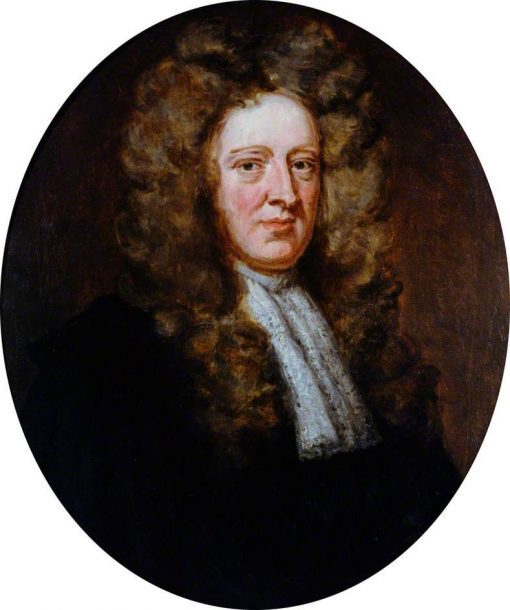
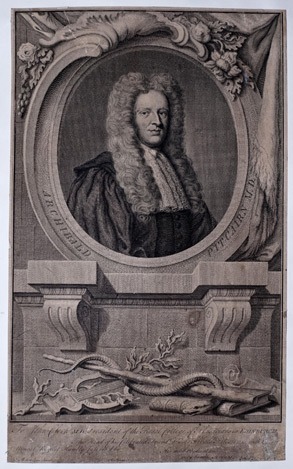
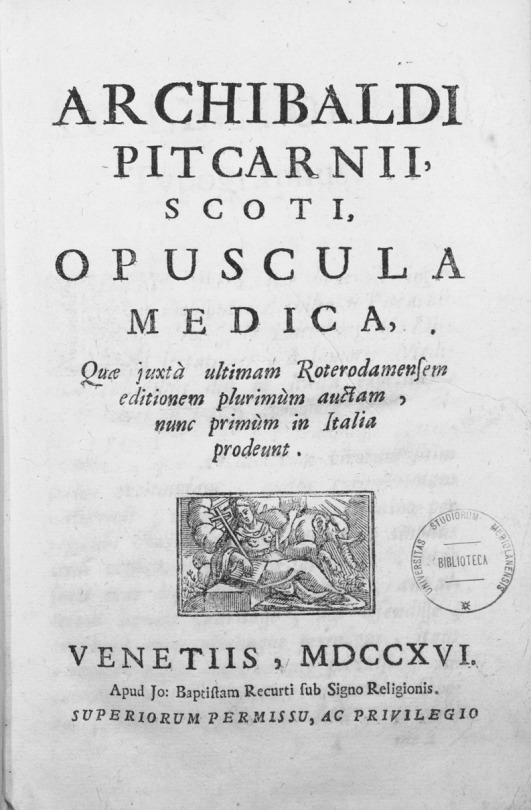
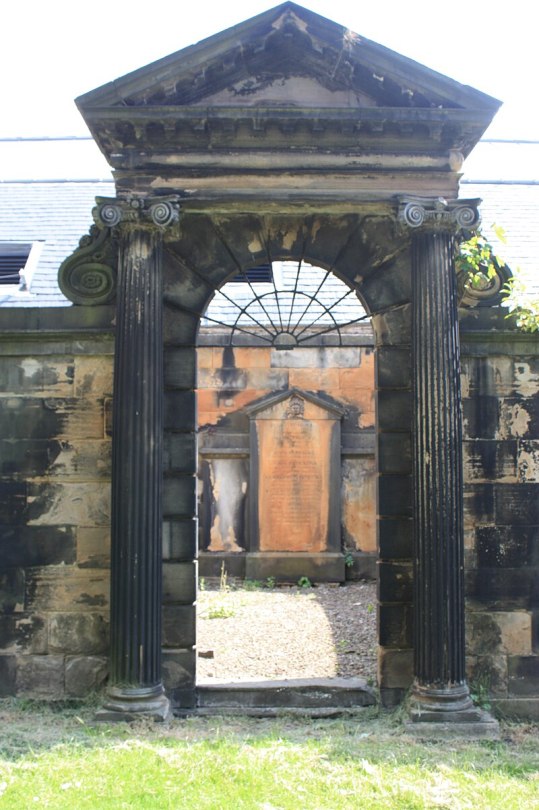
On December 25th 1652 Archibald Pitcairne, pioneer Scottish physician was born in Edinburgh.
There has been much debate about how much the Union of Scotland and England in 1707 pushed the Scottish Enlightenment, the birth and life of Pitcairne gives evidence it was in full flow before the said union.
After an initial classical education at the school of Dalkeith, Pitcairne entered The University of Edinburgh, aged 16 in 1668, and took his Masters degree three years later.
He moved to France on account of poor health, where he started his education in medicine, becoming a doctor in 1680, he took up the position of professor of medicine at the University of Leiden in the Netherlands, but returned to Edinburgh in 1693.
He was also an important early disciple of Isaac Newton, one of a group of Edinburgh Newtonians who played a significant role in the spread of Newton’s theories. His satirical writings criticising the Church earned him a reputation as an atheist and freethinker. Due to this he made a few enemies in Edinburgh, but perhaps paved the way for the likes of David Hume, with his atheist views.Another reason he was viewed in this way were his political views, he was a loud Jacobite. His son had joined the 1715 rebellion and had been capture. Sentenced to death his father pleaded his case with Robert Walpole, he won him an reprieve.
He was a man of great intellect and was in turn mathematician, poet, dramatist, bibliophile and latinist as well as doctor.
In 1699 though he was awarded the degree of M.D. from Aberdeen University, and in 1701 he was admitted to the Royal College of Surgeons of Edinburgh.
Pitcairne died in Edinburgh on 20 October 1713, aged 60. He had been a great collector of books, and his library, which is said to have been of considerable value, was sold to Peter the Great of Russia. He is buried in a vault within the Covenanter's Prison at Greyfriars Kirkyard.
11 notes
·
View notes